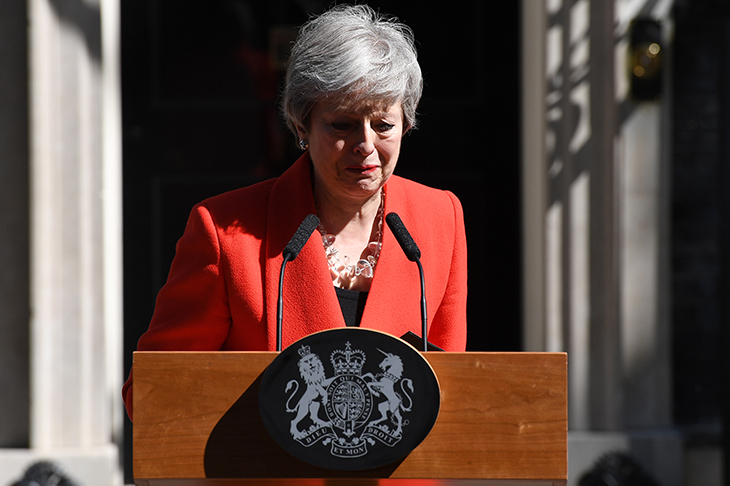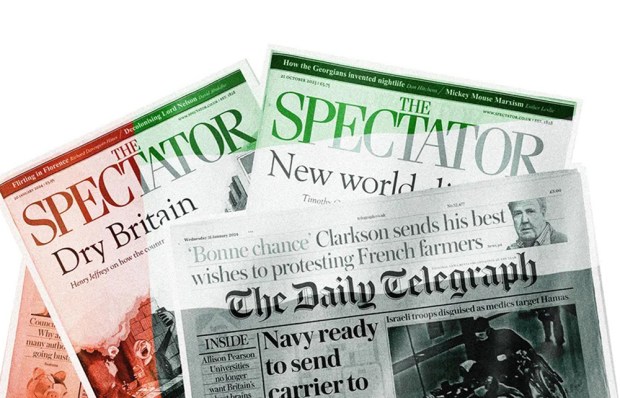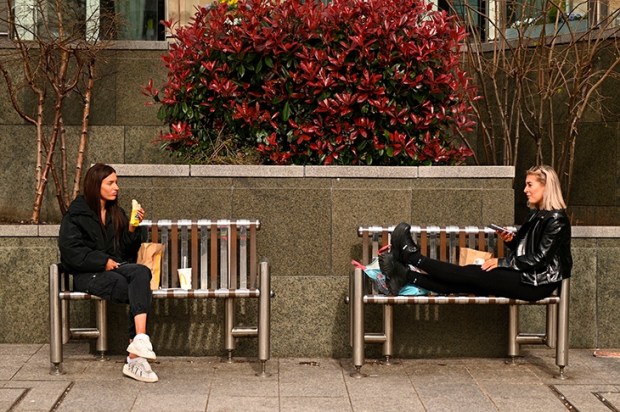Recording the BBC Radio 4 Reith Lectures has brought me to five cities and five styles of questioning. Cardiff had been pungent, positive and intelligent, with a cameo appearance from a belligerent Mark Reckless, who seemed to think that the judges were responsible for the legislative impasse over Brexit. In London, people came armed with prepared speeches about every subject under the sun, followed by the usual ‘Howzat?’. Birmingham was quieter, thoughtful and to the point. Edinburgh was about human rights: plenty of room for confrontation there, but courteous and well-reasoned points from a knowledgeable audience. In Washington the theme was what British politics could learn from the United States (not much in my view). There was curiosity about Brexit, misconceptions about Britain, defensiveness about US politics. The front row was occupied by the usual right-wing thinktanks whose questions came with a curl of the lip and a barely suppressed snarl.
To the Washington National Gallery for the best of the many exhibitions this year marking the 500th anniversary of the Venetian painter Tintoretto. I have always thought him just a bit too gaudy to deserve the plaudits heaped upon him, but I shall keep this to myself for fear of being thought a philistine. The other rooms are a better bet. This is one of only two great national collections in the world to owe their existence to private munificence rather than the accumulations of a defunct monarchy (our own National Gallery is the other). Remarkably, its founder, the banker and industrialist Andrew Mellon, spent much of his fortune on it at a time when he was public enemy no. 1, reviled by Roosevelt as the ‘mastermind among the malefactors of great wealth’ and pursued through the courts on baseless and politically motivated charges of tax fraud. Today, a politically correct vetting committee would reject his gift as tainted money. Yet a century later, who cares? We can enjoy the largesse of this rebarbative but discerning billionaire without bothering about its origins.
A month spent in trains and planes has given me time to catch up on books I am slightly ashamed of having never read. Top of the list: Primo Levi’s If This Is a Man. In the enormous literature of the Holocaust, Levi’s understated story of his 11 months in Auschwitz remains one of the great masterpieces. There are many accounts of the evil of the Holocaust’s instigators and the brutality of its executants. This one focuses on the way in which persistent violence corrupts its victims too, destroying their moral compass and turning them into cheats and bullies in the struggle to survive. It makes uncomfortable reading for those who believe in the fundamental goodness of mankind. The next book on my list was one of Trollope’s political novels, but I couldn’t bear to open it.
Back to London and the Brexit bubble. Theresa May’s last days as Prime Minister have finally arrived amid a torrent of abuse on every side. But pause for a moment to reflect upon her personal and political tragedy, for history will be kinder to her than we have been. Faced with what many regard as an act of economic vandalism by a bare majority of the electorate, she did her loyal best to limit the damage. Her mistake was to repudiate those who would have been her natural allies. Instead, she made her pitch to the grim fanatics behind her, with whom no agreement on damage limitation was ever possible. Their guide was faith, not reason; compromise was treason and the EU was the Antichrist. Naturally, they responded by devouring her, and destroying their own party in the process. But by the time she realised this, it was too late. May’s courage in the face of adversity commands respect. She was let down by her insularity, which deprived her of wise advice, and by her own utter lack of political imagination, tactical agility or basic communication skills.
In Austria for the 150th anniversary of the Vienna State Opera and the opening of Richard Strauss’s Die Frau Ohne Schatten. The Viennese are in the middle of their own political crisis, but over sekt and canapés in the intervals, they seem more interested in ours. They have heard of only one candidate for May’s job. ‘Who is this Joris Hobson who is going to be your next prime minister?’, they ask. ‘Boris Johnson, but don’t count on it.’ ‘Yes, yes, Morris Watson. Is he some kind of fascist?’ ‘Not at all. A romantic, a bit of a clown, but perfectly harmless when out of office.’ ‘Well, if it is not Moggson, then who?’ ‘No idea.’ My short-lived authority as an expert on British politics is over.
Got something to add? Join the discussion and comment below.
Get 10 issues for just $10
Subscribe to The Spectator Australia today for the next 10 magazine issues, plus full online access, for just $10.
You might disagree with half of it, but you’ll enjoy reading all of it. Try your first month for free, then just $2 a week for the remainder of your first year.














Comments
Don't miss out
Join the conversation with other Spectator Australia readers. Subscribe to leave a comment.
SUBSCRIBEAlready a subscriber? Log in